Generosity is one of the cornerstones of meditation practices. Meditation practices for developing generosity in Buddhism are based on the practices of giving of yourself unconditionally without anticipation of any reward.
We all know what it feels to give of our time, energy or material resources to others in need. The feeling is like a mother taking care of her child.
When we give unconditionally to another, we experience a profound letting go and this results in a sense of true freedom and connection with the world.
Giving can take the form of money or other valuable goods. In some cases, this is enough because there are people involved in charitable organizations that take care of distributing the gifts for you.
In other situations, you may want to give of your time to volunteer for some activity that touches your heart. Giving this way allows you to experience loving kindness and compassion.
However you choose to give, do so mindfully and without expectation.
Meditation Practices for Developing Generosity
The Tricycle Wisdom Collection presented a series of seven brief articles on meditation practices for developing generosity. Here are quotes from a few of them:
The act of giving purifies intention, the quality of mind with which any action is undertaken. For a brief moment, the giver’s self-absorption is lifted, attachment to the gift is relinquished, and kindness towards the recipient is developed. All actions—of thought, word, and deed—undertaken for the sake of others rather than for one’s own selfish purposes become transformed by the power of generosity.
Giving needs to be practiced and developed because our underlying tendency toward attachment, aversion, and confusion so often interferes with a truly selfless act of generosity.
— Andrew Olendzki
The Tibetans have a practice to cultivate generosity. They take an ordinary everyday object such as a potato or a turnip, and hold it in one hand and pass it to the other hand, back and forth, until it becomes easy. They then move on to objects of seemingly greater value, such as a mound of precious jewels or rice. This “giving” from hand to hand ultimately becomes a symbolic relinquishment of everything—our outer material attachments and our inner attachments of habits, preferences, ideas, beliefs—a symbolic “letting go” of all the ways that we create a “self” over and over again.
— Marcia Rose
In reflecting on dana paramita, however, I am reminded that it requires “three kinds of purity.” That is, according to Buddhism, true giving involves the awareness that there is no giver, no gift, and no receiver. Attachments of any kind—whether it be to self as the benefactor, the value of the gift, or the acknowledgment by the receiver—nullify the pure act of giving.
— Taitetsu Unno
Dana [generosity] is the practice of pratitya samutpada, mutually dependent arising. Everything is contingent upon everything else. Plants transpire, the moisture evaporates and returns as rain. The earth is dampened, allowing rootlets to absorb nutrients in the soil. The nutrients themselves are released by worms that eat the earth, and by the casts of countless other beings as they give themselves in death. People, animals, and other plants flourish, and give themselves in turn. The Buddha suggested that human beings can get along best by following this natural way of things. Giving creates happiness; greed creates misery.
— Robert Aitken Roshi
For the recipient, there is similarly a kind of vulnerability in accepting a gift from a loved one. If you are disappointed—or even insulted—by the gift, or if you sense that the giver is not really in tune with who you are, how do you respond in a way that is not hurtful?
— Judy Lief
When I was a young man, I found that I could give unconditionally to my children, but giving to charity was another matter. I married a woman who was a total giver. This helped change me as much as meditation practices.
In recent years, I am committed to facilitating the Mindfulness In Healing support group at the Pine Street Clinic in San Anselmo, California in a effort to give back to my community. In addition, I served on the Board of Directors of the Marin AIDS Project and on the Community Council of the Institute for Health and Healing.
It is no longer difficult for me to give generously to organizations that support meditation practices for developing generosity and those that safeguard people, plants and animals on this great earth.
How Do You Practice Generosity?
I’m wondering if you would share how you practice generosity. Do you have specific work that you do for charitable organizations?
If you look at page 5 of the source material for this posting, you may be able to discover more ways you can give back to your community.
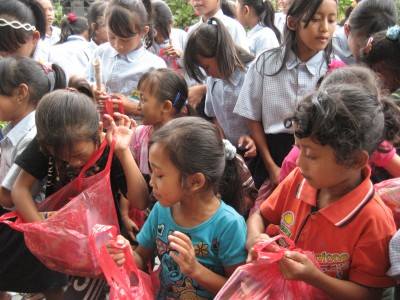



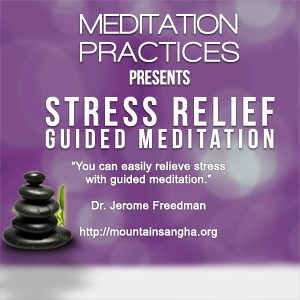

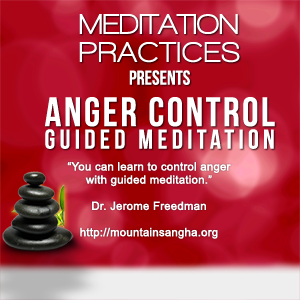


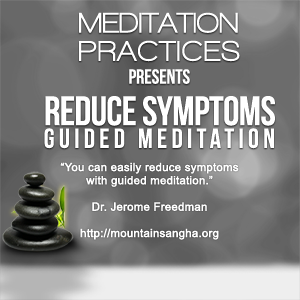
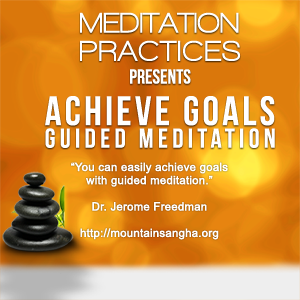


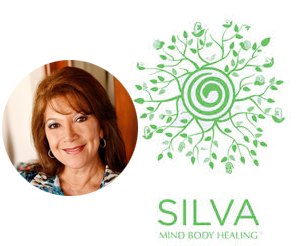
You must be logged in to post a comment.